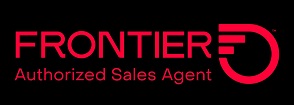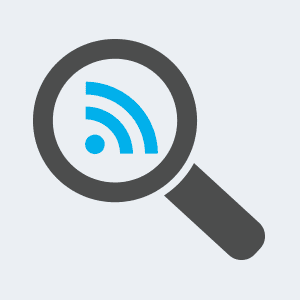HouseholdsIn Big Springs (Gilmer County), WV, the aggregate number of households is 17,329 |
Median IncomeHouseholds in the city of Big Springs (Gilmer County), WV have a median income of $38,629. |
PopulationThe total population in the city of Big Springs (Gilmer County), WV is 28,942 |
DSL TechnologyApproximately 98.74% of consumers in the city of Big Springs (Gilmer County), WV have access to DSL internet |
Fiber TechnologyApproximately 0.5% of consumers in the city of Big Springs (Gilmer County), WV have access to fiber-optic internet. |
Cable TechnologyApproximately 90.48% of consumers in the city of Big Springs (Gilmer County), WV have access to cable internet. |
Wireless TechnologyApproximately 99.92% of consumers in the city of Big Springs (Gilmer County), WV have access to mobile broadband internet. |
Average upload speedFor residents in the city of Big Springs, WV, the city-wide average upload speed is 5 Mbps |
Average download speedFor residents in the city of Big Springs, WV, the city-wide average download speed is 9 Mbps. |
Best Internet Service Providers in Big Springs, WV


Call (858) 947-7574

Best Internet Service Providers in Big Springs, WV
| Provider | User Rating | Phone Number |
|---|---|---|

|
|
(858) 947-7563 |

|
|
(205) 946-1154 |

|
|
(858) 947-7547 |

Find and Compare the Best Internet Service in Big Springs, WV
When choosing new Internet service, it's important to understand the advantages and disadvantages of DSL, satellite, and cable internet connections in Big Springs, WV, and how they work.
In today's world, internet users have a wide variety of high-speed internet services to choose. Some of the most popular internet services available are cable Internet, fiber optic internet, DSL, and satellite internet. The market has become extremely competitive with all of these options available. With this fierce competition raging on, prices are going down, streaming speeds are increasing, and there is usually a wide variety of internet package deals available to choose. Most package deals include your internet, phone, and TV services at a discounted rate.
Services such as MyRatePlan allows customers to find the greatest deals on high-speed Internet in the greater Big Springs, WV area. When you choose MyRatePlan, we make sure to get you the best provider and internet service which are compatible with your current phone and TV service. All you need to do is enter your ZIP code into the search bar at the top of the page.
If you're after an internet service provider for your business, MyRatePlan has a separate service page for those plans. If you're unsure of your current bandwidth usage, MyRatePlan has an internet speed test available, which is compatible across all platforms and doesn't require any flash players or JavaScript to run.

Big Springs, WV Cable Internet Providers
Many cable companies offer high-speed cable internet, telephone, and television services in Big Springs, WV. The firms create a physical connection between their subscribers and their nearest location by using fiber optics or coaxial cables. The clients use cable modems to access internet services. The cable modems use bandwidth from television channels to connect them to the web. MyRatePlan's broadband comparison enables you to locate the most suitable cable internet for your needs.
It is easy to combine internet and television services because they require a small amount of bandwidth. Many cable firms in the region provide their clients with bundles of internet, television, and telephone services. In some instances, they offer a combination of the three. It is easy to add internet services to existing television or phone services because they all use the same cables. All you have to do is install your modem. Cable internet is advantageous because the quality of your internet connection is not affected by the proximity of the user and the provider's office.
It is convenient to have cable internet if you do not share a cable channel with any other person. However, residents who live in highly populated areas of Big Springs, WV, can experience a decline in internet speeds and have some problems using cable internet. The problem arises when many users share large data files or stream multiple videos. Sharing channels leads to sharing of the same bandwidth. Clients should keep in mind that a combined telephone, television, and internet service bundle is a good deal. However, the services might be slightly cheaper if they were purchased separately. You can use the MyRatePlan tool to view the different prices of each service.

Fiber Optic Internet Service in Big Springs, WV
One of the latest advancements in digital technology is fiber optics. Several service providers have started offering fiber-optic Internet services, and in Big Springs, WV, there are several different providers. These service providers offer phone, TV and Internet services using a fiber-optic network, which functions similarly to a cable network. The major difference is the improved speed offered by a fiber-optic network, and in many areas, the speed difference is significant. Fiber-optic services are almost always called FiOS.

Big Springs, WV DSL Internet Service
This service isn't nearly as popular as cable, but it comes with its own unique advantages. DSL is short for digital subscriber line, and it's made possible by analog telephone lines. By connecting to an analog phone line, DSL customers can use bandwidth within the phone lines to access the Internet and make telephone calls. Analog telephone lines are known for transferring calls, but they also hold bandwidth that works great for the Internet. For this connection to work, a customer must have a DSL modem, and the modem creates a link between the computer and service provider. A DSLAM is used by the provider to connect the customer to the Internet. MyRatePlan is the easiest way to compare DSL Internet providers in Big Springs, WV.
A DSL Internet connection is possible because telephone calls don't require an enormous amount of bandwidth. Since the Internet connection uses extra bandwidth in the phone line, a DSL customer can make phone calls while using the Internet. This isn't possible with a dial-up connection. A major advantage of choosing DSL is the lack of connection sharing. The problem with cable Internet is that it forces users to share a connection, which can slow down the connection for everyone. A DSL connection is different because it doesn't require users to share the connection. The lack of connection sharing can make DSL faster than cable in some areas. However, DSL does come with a disadvantage because the signal degrades over long distances. Due to this problem, DSL customers who live far away from the nearest service station won't get the best signal. Before choosing a DSL connection, it's important to read reviews and compare the different services in your area.

Selecting the Best Satellite Internet Service in Big Springs, WV
Satellite Internet service comes through a satellite dish on top of the customer's home or in an area with a clear view of the south-facing sky. For some homeowners and residents in remote areas, satellite Internet service is the only alternative to dial-up service through a traditional phone line. Like cable Internet service and DSL service, a satellite Internet user must use a modem to connect to the Internet. The user's computer or Internet-ready device will connect to the modem, and the modem will connect to the satellite dish to receive service.
Satellite Internet service is usually considered the slowest option out of cable, fiber optic, and DSL, but its availability in remote areas makes it an excellent choice when a homeowner or apartment dweller has no other option besides dial-up. Residents living in areas that aren't close to the home office or service provider's location may also need to choose satellite Internet for the best experience. Although satellite Internet service isn't the fastest option available, its convenience is something to consider when choosing from available Internet service providers in Big Springs, WV.
Find Internet Service Providers in
- Saint Marys, WV
- Ellenboro, WV
- Exchange, WV
- Looneyville, WV
- Sand Fork, WV
- Grantsville, WV
- Burnsville, WV
- Copen, WV
- Chloe, WV
- Reedy, WV
- Arnoldsburg, WV
- Orma, WV
- Palestine, WV
- Linn, WV
- Normantown, WV
- Left Hand, WV
- Troy, WV
- Berea, WV
- Weston, WV
- Le Roy, WV
- Pullman, WV
- Camden, WV
- Alum Bridge, WV
- Creston, WV
- Shock, WV
- Millstone, WV
- Newton, WV
- Pennsboro, WV
- Harrisville, WV
- Brohard, WV
- Munday, WV
- Spencer, WV
- Belmont, WV
- Rosedale, WV
- Coxs Mills, WV
- Smithville, WV
- Mount Zion, WV
- Smithburg, WV
- Gassaway, WV
- Cairo, WV
- Orlando, WV
- Macfarlan, WV
- Frametown, WV
- Waverly, WV
- New Milton, WV
- West Union, WV
- Cedarville, WV
- Nebo, WV
- Glenville, WV
- Auburn, WV
- Big Bend, WV
- Davisville, WV
- Petroleum, WV
- Elizabeth, WV
- Rockport, WV
- Walker, WV
- Mineral Wells, WV
Find Other Services in Big Springs, WV
ZIP Codes in Big Springs, WV
- 26137


 Menu
Menu